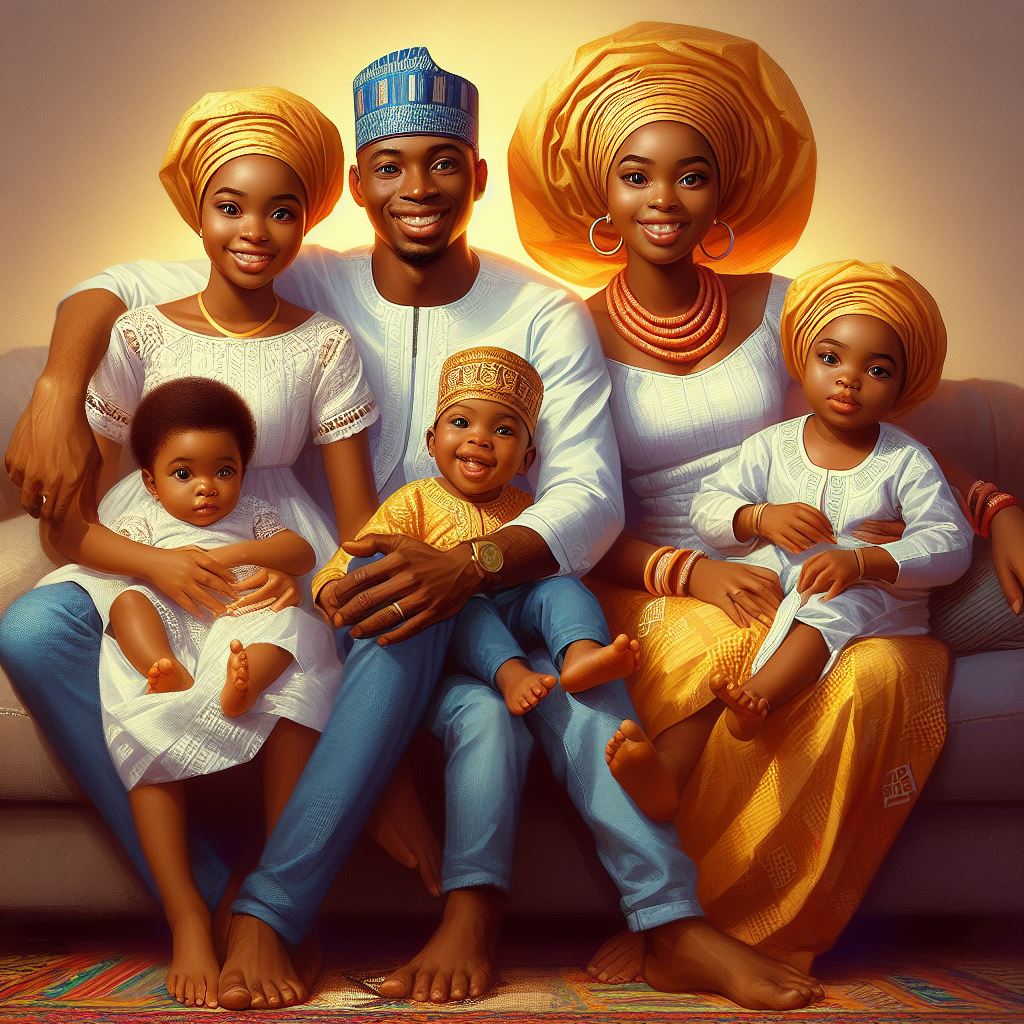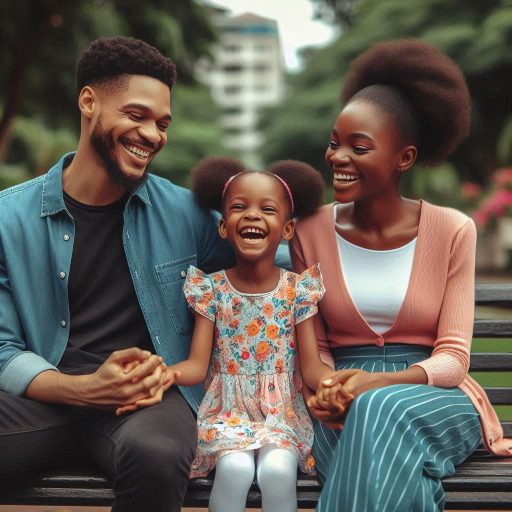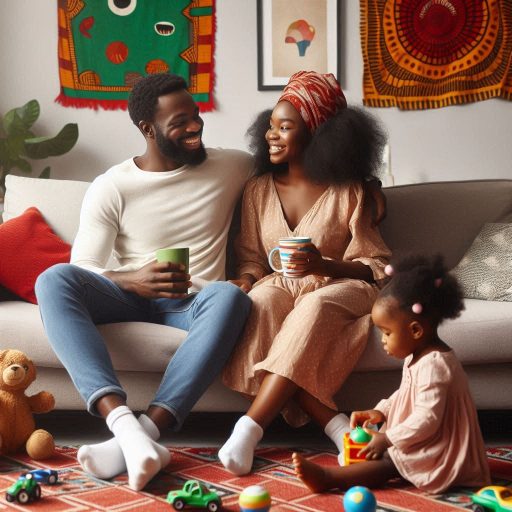Introduction
A prevalent issue in Nigerian society is gender bias, ingrained in cultural norms. Addressing this bias is crucial.
Gender bias restricts opportunities, reinforcing inequality, hindering societal progress. Parents play a pivotal role in shaping attitudes towards gender.
They influence perceptions, behaviors, and values children adopt. Tackling bias early promotes a fairer, more inclusive society.
Gender bias manifests in various aspects: education, employment, and societal roles. It perpetuates stereotypes, limiting individuals’ potential and opportunities.
It’s imperative to dismantle these biases for a more equitable future. Addressing gender bias isn’t solely a women’s issue; it impacts everyone.
Boys and girls both suffer from its constraints. Empowering girls doesn’t diminish boys’ prospects; it benefits society as a whole.
This post explores parental perspectives on combating gender bias. Parents’ attitudes significantly impact children’s perceptions of gender roles.
Recognizing and challenging bias starts within the family unit. Parents must consciously foster an environment promoting gender equality.
By challenging stereotypes and encouraging open-mindedness, parents shape progressive attitudes.
Addressing gender bias fosters a more inclusive society for future generations.
This post delves into strategies empowering parents to combat gender bias effectively. Understanding the importance of parental influence is key.
It’s an opportunity to break the cycle of bias, fostering a fairer society. In conclusion, parental involvement is pivotal in reshaping societal attitudes.
Addressing gender bias within families lays the groundwork for change. It’s time to create a more equitable future by challenging ingrained biases.
Definition of Gender Bias
Explanation of gender bias
Gender bias refers to the unequal treatment or discrimination based on an individual’s gender, primarily favoring one gender over the other.
It involves the social, economic, and cultural prejudices that perpetuate gender inequality.
Parenting Made Just for You
Get personalized Parenting Solutions tailored to your child’s needs. Transform your parenting journey with expert guidance in 1-3 days.
Get StartedExamples of gender bias in Nigerian society
Limited Educational Opportunities
Nigerian girls, compared to boys, face barriers in accessing quality education due to societal beliefs that prioritize boys’ education.
Consequently, this perpetuates the gender gap in literacy rates.
Male Dominance in Political Leadership
Nigerian society tends to favor men in leadership positions, resulting in limited representation of women in politics.
This bias hampers women’s influence and contributions to policy-making and governance.
Wage Gap and Employment Discrimination
Nigerian women often encounter unequal pay for equal work.
Gender bias leads to employers offering lower wages to female employees, regardless of their qualifications or performance.
Gender-based Violence
Nigerian society experiences high rates of gender-based violence, including domestic abuse, sexual assault, and female genital mutilation.
These forms of violence are deeply rooted in gender bias and contribute to the marginalization of women.
Inheritance Laws
Traditional customs and cultural norms in Nigeria often discriminate against women in terms of inheritance rights.
These biases deprive women of their rightful share of family property, placing them in vulnerable positions within the patriarchal society.
Limited Political Participation for Women
Cultural biases and societal expectations prevent women from actively participating in political activities, including voting and running for political office.
This gender bias restricts women’s voices and representation in decision-making processes.
Child Marriage
Nigerian society still practices child marriage, predominantly affecting young girls.
This deprives them of their childhood, education, and future opportunities, perpetuating a cycle of gender bias and inequality.
Unveil the Perfect Name that Tells Your Family's Story
Let us help you find a name that embodies your family's values, traditions, and dreams. Our personalized consultation weaves cultural insights to create a name that's uniquely yours.
Get StartedTraditional Gender Roles
Nigerian society often assigns specific roles and responsibilities to men and women, reinforcing gender bias.
This restricts women’s freedom, limiting their access to resources and opportunities for personal and professional growth.
Dowry and Bride Price
The practice of dowry and bride price in Nigerian culture reinforces the commodification of women.
These practices degrade women to mere objects and perpetuate gender bias by commodifying their worth.
Women’s Limited Decision-making Power
Nigerian women often face limited autonomy when it comes to making decisions, both within their families and society.
Their opinions and voices are often devalued, reflecting deep-seated gender biases.
In essence, gender bias in Nigerian society is deeply entrenched in various aspects of life, including education, politics, employment, and cultural practices.
It perpetuates the marginalization of women, limiting their opportunities and freedoms.
To address this issue, it is crucial to challenge and dismantle these biased beliefs and practices, promoting gender equality and empowering women to participate fully in all spheres of Nigerian society.
Read: Gender and Health: Nigerian Parental Concerns
Causes of Gender Bias in Nigerian Society
Traditional beliefs and cultural practices
Traditional beliefs and cultural practices play a significant role in shaping gender bias in Nigerian society.
Patriarchal norms and expectations create a hierarchical structure where men hold power and authority, while women are expected to be submissive and comply with societal norms.
These traditional beliefs reinforce the discrimination against women and contribute to gender bias in various aspects of Nigerian society.
Lack of education and awareness
Moreover, the lack of education and awareness exacerbates the gender bias in Nigeria.
Limited access to education for girls restricts their opportunities and perpetuates the notion that women’s roles are primarily domestic.
This lack of education also leads to the perpetuation of stereotypes, as people are not exposed to alternative perspectives and ideas that challenge traditional gender roles.
Without awareness, individuals are more likely to conform to societal expectations, deepening the gender bias in Nigerian society.
Influence of media
The influence of media cannot be underestimated in fueling gender bias.
Advertising and entertainment often depict gender stereotypes, portraying women as submissive, nurturing, and solely focused on their appearance, while men are portrayed as strong, dominant, and the breadwinners of the family.
These portrayals reinforce traditional gender roles and perpetuate the notion that women should occupy secondary positions in society.
Media has a significant impact on shaping societal perceptions and beliefs, making it crucial to challenge and dismantle gender stereotypes in media representation.
To combat gender bias in Nigerian society, several steps can be taken.
First, there is a need to challenge and transform traditional beliefs and cultural practices that perpetuate gender inequality.
Promoting gender equality in family dynamics, empowering women economically, and addressing biases in cultural practices can help eradicate gender bias.
Second, it is essential to prioritize education and increase access to education for girls.
By providing equal educational opportunities, girls can gain knowledge and skills, empowering them to challenge societal norms and promoting gender equality.
Third, media plays a vital role in shaping societal perceptions, and it is crucial to promote gender-positive representations.
Encouraging media outlets to portray diverse and empowering images of women and challenging traditional gender roles in their content can significantly contribute to combating gender bias.
In fact, gender bias in Nigerian society is influenced by traditional beliefs and cultural practices, lack of education and awareness, and the influence of media.
By actively challenging these factors and promoting gender equality, Nigerian society can progress towards a more inclusive and fair society for all genders.
Read: Gender-Specific Challenges in Nigerian Parenting
Effects of Gender Bias on Children
Limitations on their aspirations and potential
The effects of gender bias on children in Nigerian society are far-reaching and detrimental.
Gender bias limits children’s aspirations and potential, hindering their ability to explore and pursue their true passions.
Girls, in particular, face immense societal pressure and discouragement when it comes to pursuing careers in fields traditionally dominated by men, such as science, technology, engineering, and mathematics (STEM).
This limitation deprives them of opportunities for personal growth and professional success.
Reinforcement of gender stereotypes and roles
Similarly, boys also suffer from gender bias as they may be discouraged from exploring artistic or creative interests, which may be associated with femininity.
This reinforcement of gender stereotypes and roles restricts their potential and limits their ability to develop a well-rounded skill set.
By adhering to rigid societal expectations, boys may miss out on opportunities to explore their talents and interests outside of traditional masculine roles.
Negative impact on their self-esteem and confidence
One of the most concerning effects of gender bias on children is the negative impact on their self-esteem and confidence.
Girls, in particular, may develop a fear of asserting themselves and expressing their opinions due to societal pressure.
They may be conditioned to believe that their ideas and voices are less valued than those of their male counterparts.
As a result, they might shy away from opportunities to assert themselves and participate actively in decision-making processes, hindering their personal and professional growth.
On the other hand, boys may experience the negative effects of gender bias through the constant pressure to prove their masculinity.
This pressure can lead to feelings of inadequacy and can be detrimental to their mental health.
Boys may struggle with expressing vulnerability and their emotions, fearing that they will be perceived as weak or unmanly.
This self-imposed limitation can hinder their ability to form meaningful relationships and lead to a lack of emotional intelligence.
In short, gender bias in Nigerian society has significant effects on children.
It places limitations on their aspirations and potential, reinforcing traditional gender stereotypes and roles.
Additionally, it negatively impacts their self-esteem and confidence, hindering their personal and professional growth.
Addressing and challenging gender bias in society is crucial to create a more equitable and inclusive environment for children, allowing them to flourish and reach their full potential.
Read: Celebrating Gender Diversity with Nigerian Children

The Role of Parents in Addressing Gender Bias
As parents, we have a significant role to play in addressing and combating gender bias in Nigerian society.
Our actions and values greatly influence the way our children perceive gender roles and expectations.
By actively promoting gender equality within our households, we can ensure a more equitable future for our children.
Encouraging gender equality at home
- Sharing household chores and responsibilities: We should foster an environment where both boys and girls take part in household chores and responsibilities.
By assigning tasks without any gender bias, we teach our children the importance of shared responsibilities. - Promoting open discussions on gender issues: It is essential to create a safe space for our children to discuss gender-related topics.
By encouraging open conversations, we can address any misconceptions and challenge harmful stereotypes.
Providing equal opportunities for both boys and girls
- Supporting education and career choices for all children: As parents, we should support our children’s educational and career aspirations, irrespective of their gender.
Providing equal opportunities for growth and development will help break gender barriers. - Eliminating favoritism based on gender: We must avoid favoritism towards any gender within our families.
Equal love, support, and opportunities should be provided to all our children, regardless of their gender.
Being positive role models for their children
- Challenging gender stereotypes through actions and words: Our behavior and words have a profound impact on our children’s perception of gender roles.
By consciously challenging traditional gender stereotypes through our actions and words, we can instill a sense of equality within them. - Teaching respect, empathy, and equality: It is crucial to teach our children the values of respect, empathy, and equality.
By demonstrating these qualities ourselves and fostering an environment where everyone is treated with fairness and kindness, we can raise children who challenge gender bias.
By taking these steps, parents can actively contribute to creating a more inclusive and equitable society.
It is our responsibility to mold our children’s values and beliefs, and by promoting gender equality at home, providing equal opportunities, and being positive role models, we can help eradicate gender bias in Nigerian society.
Together, let us work towards a future where all individuals, regardless of their gender, have equal rights and opportunities to thrive and succeed.
Read: Breaking Gender Norms: Stories from Nigerian Families
Strategies to Combat Gender Bias in Nigerian Society
Gender bias in Nigerian society is deeply rooted in cultural norms and traditions. To dismantle this societal issue, a multi-faceted approach is required.
By implementing strategies to combat gender bias, we can create a more equal and inclusive society.
Educating children about gender equality
An effective way to combat gender bias is by incorporating gender equality teachings in schools.
This can be done by including gender-sensitive topics in the curriculum and providing training for teachers to address gender stereotypes and biases.
By educating children from a young age, we can promote a more inclusive and fair society.
Additionally, promoting inclusive curriculum and textbooks is essential.
Including diverse and balanced narratives that showcase the achievements of both men and women can help challenge gender biases ingrained in society.
By presenting a more accurate representation of gender roles and capabilities, we can foster a more equitable society.
Advocating for policy changes
Policy changes play a crucial role in combating gender bias.
Supporting initiatives that aim to achieve gender equality, such as campaigns against gender-based violence and discrimination, can create a safer and more inclusive environment for all genders.
Moreover, advocating for increased representation of women in leadership roles is necessary to challenge deeply entrenched patriarchal structures.
Empowering women and girls
Empowering women and girls is paramount to combat gender bias.
Providing access to education and skill-building opportunities equips them with the tools to challenge and overcome societal barriers.
By investing in programs that promote education and training for women and girls, we can empower them to become active participants in all spheres of life.
Furthermore, promoting economic empowerment and independence for women is crucial.
This can be achieved through initiatives like providing microfinance support, entrepreneurship training, and access to resources for income-generation activities.
When women are economically empowered, they gain autonomy and their contributions to society are recognized and valued.
By implementing these strategies, we can gradually dismantle gender bias in Nigerian society.
It requires collaboration between government institutions, educational systems, community leaders, and individuals.
Together, we can create a society that values and respects the rights and abilities of all individuals, regardless of their gender.
Conclusion
Gender bias in Nigerian society is a significant issue that cannot be ignored.
It perpetuates inequality and hampers progress in all aspects of life for both men and women.
Parents play a crucial role in shaping their children’s beliefs and attitudes towards gender.
They must actively challenge and combat gender bias in their own homes and communities.
Despite the challenges, there is hope for a future where both genders are treated equally in Nigerian society.
It requires a collective effort from parents, educators, policymakers, and the entire community to create a more inclusive and equitable society.
By addressing gender bias and promoting gender equality, we can create a society where everyone has equal opportunities to thrive and contribute their skills and talents.
Let us work together to build a better future for all Nigerians.




